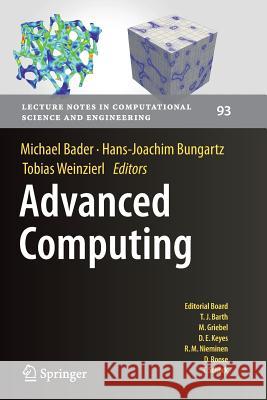Advanced Computing » książka
topmenu
Advanced Computing
ISBN-13: 9783662513729 / Angielski / Miękka / 2016 / 240 str.
Kategorie:
Kategorie BISAC:
Wydawca:
Springer
Seria wydawnicza:
Język:
Angielski
ISBN-13:
9783662513729
Rok wydania:
2016
Wydanie:
Softcover Repri
Numer serii:
000107874
Ilość stron:
240
Waga:
0.36 kg
Wymiary:
23.39 x 15.6 x 1.4
Oprawa:
Miękka
Wolumenów:
01
Dodatkowe informacje:
Wydanie ilustrowane











